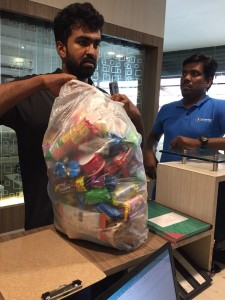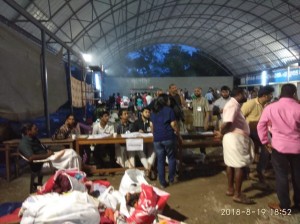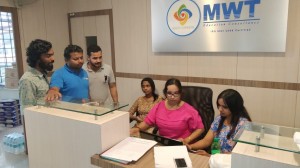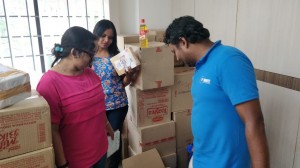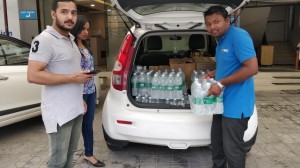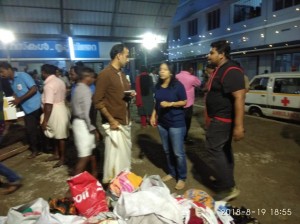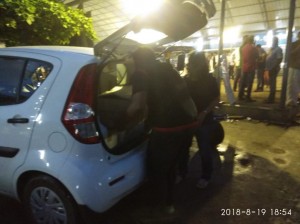Read the original article at this link https://www.cdc.gov/disasters/floods/index.html
Floods, big or small, can have devastating effects on your home and your family. We can take steps to reduce the harm caused by flooding. Learn how to prepare for a flood, stay safe during a flood, and protect your health when you return home after a flood.
Flood water can be extremely polluted. It is important to understand how to reduce the risk of injury, sickness or infection during flood.
When you know or suspect that a flood warning has been issued for your area, do the following:
- Move garbage containers, chemicals and poisons beyond the reach of the water
- Secure objects that might float away and cause damage
- Move stock and equipment to high ground
- Stack your furniture and other possessions beyond the reach of the water.
- Place electrical appliances on a higher level.
Keep Away from Flood Waters
Avoid any contact with flood waters, such as swimming, after a flood. Flood waters can contain large amounts of contaminants of all kinds, which can be hazardous.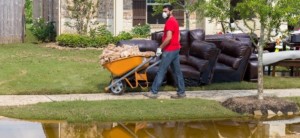
Sanitize Flooded Areas
Floors, walls, equipment and furniture that have been covered with flood waters should be cleaned and sanitized to kill any bacteria or viruses. Wear gloves, eye protection and boots when working with contaminated areas and items. Items should be cleaned with soap and water, rinsed and then sanitized with a solution of a quarter cup of household bleach and one gallon of water.
Well Contamination
If a well or spring was covered with flood waters, it must be considered contaminated. Do not drink or prepare foods with water from a well until it is disinfected and tested. Buy bottled water to drink and use for cooking. Remember to not drink, bath or cook with the water while bleach is in the system.
Septic System Failures
In most cases of septic system failure, the only thing that can be done is to wait for the water levels in the soil to fall. If sewage comes to the top of the ground, the tank could be pumped for temporary relief. If flooding washed away the soil around the system, the system may need to be repaired or replaced.
Spoiled Food and Food Poisoning
If any flood waters have touched foods, throw them out. If the temperature in a refrigerator was at 60 degrees or higher for more than two hours, do not eat the food inside. There’s no reliable way to tell if food will make you sick by looking at it or smelling it. When in doubt, throw it out.
Mosquitoes
Flooding leaves pools of water that are ideal for breeding mosquitoes, which can carry diseases. Dump any water-filled containers around your home to discourage mosquitoes. Water that cannot be drained can be treated with certain insecticides and biological control agents.
Immunizations
The rates of diseases that were present before a flood may increase because of decreased sanitation or overcrowding among displaced persons. Increases in infectious diseases that were not present in the community before the flood are not usually a problem. If you receive a puncture wound or a wound contaminated with feces, soil, or saliva, have a doctor or health department determine whether an immunization is necessary based on individual records.
were not present in the community before the flood are not usually a problem. If you receive a puncture wound or a wound contaminated with feces, soil, or saliva, have a doctor or health department determine whether an immunization is necessary based on individual records.
Precautions When Returning to Your Home
- Electrical power and natural gas should be shut off to avoid fire, electrocution, or explosions.
- Try to return to your home during the daytime so that you do not have to use any lights.
- Use battery-powered flashlights and lanterns, rather than candles, gas lanterns, or
 torches.
torches. - If you smell gas or suspect a leak, turn off the main gas valve, open all windows, and leave the house immediately.
- Do not return to the house until you are told it is safe to do so.
- Avoid any downed power lines, particularly those in water. Avoid wading in standing water, which also may contain glass or metal fragments.
- Put on the personal protective equipment to protect your eyes, nose, mouth, and skin.
- When electricity is safe to use, use fans and dehumidifiers to remove moisture.
- Throw away items that can’t be cleaned and dried.
LET’S JOIN HANDS TO REBUILD KERALA!
Kerala is slowly limping back to normalcy after its tryst with nature’s fury. Today, as families are getting back to their homes and making attempts to put together a semblance of normal life again, we call for your support to help others in need. HCG, in association with the KCPM Trust, has been spearheading efforts to win the battle against nature’s deluge. We appeal to your generosity to donate whatever you can, in cash or kind, for our less fortunate brothers and sisters so that they may rebuild their homes, restore their means of livelihood and move forward with their lives.
Do call the numbers below if you would like to volunteer your time, or donate whatever is possible to help rebuild these broken communities.
LENDING A HAND IN TIME OF NEED!
Sharing some pictures of the rescue efforts by our team! We’re proud of every one of you!


